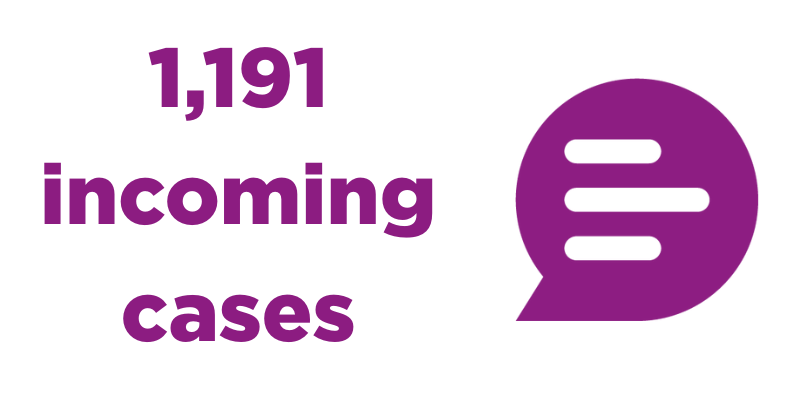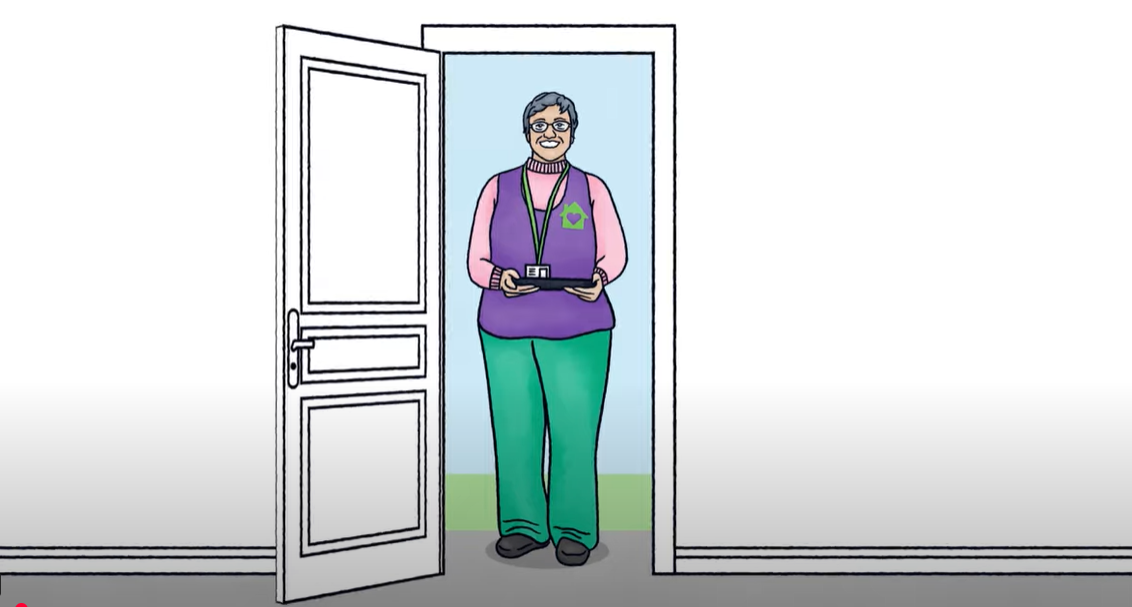A message from our Chief Executive | Annual report and accounts 2023/24
Advice for retailers – Charitable cash collections
This advice is for retailers, such as supermarkets, that allow charitable cash collections on their premises (known as “private site” collections). It is not legal advice, and is neither prescriptive nor exhaustive.
By following this advice, you can help charitable cash collections to be carried out safely and securely for donors, fundraisers and in-store colleagues. It will also help colleagues (for example; store or area managers, community champions and corporate charity teams) to book and manage collections.
Before a cash collection
If you have been approached by an organisation or individual who wishes to carry out a cash collection for a good cause in your store, we recommend you make the following checks for greater reassurance before you accept the booking. Please note that this advice does not apply to static cash collections e.g. unmanned collection tins.
1. What type of organisation is the good cause?
| Are they a charity? | Are they a fundraising agency? | Are they a community interest company (CIC)? |
|---|---|---|
| If so, ask for the charity’s name and registration number – check this with the charity regulator for England and Wales, Northern Ireland or Scotland. | If so, ask for their company name and number and check this with Companies House. You could also check if the agency is a member of the Chartered Institute of Fundraising. Ask which charity they represent and check the charity with the relevant charity regulator. ← You could also check directly with the charity that the agency is working on their behalf. |
If so, check if the CIC is registered with Companies House. A CIC is a limited company designed to benefit the community. A CIC’s income typically comes from trading, but they can also charitably fundraise. See our advice about: What is a CIC and can they fundraise? |
| AND | ||
| The Code of Fundraising Practice (the code) applies to all charitable fundraising in the UK. The Fundraising Regulator regulates all charitable fundraising in England, Wales and Northern Ireland. The Scottish Fundraising Adjudication Panel handles fundraising complaints about Scottish registered charities. If the collection will be in England, Wales or Northern Ireland: you can check whether the charity, agency or CIC has publicly committed to good fundraising practice by displaying the Fundraising Badge on their website and by checking our online Directory. If the collection will be in Scotland by a Scottish charity: you can check if the charity has committed to the code and good fundraising practice by signing the Good Fundraising Guarantee. |
||
2. Have a robust booking system in place
Once you are satisfied that the cash collection is for a genuine charitable organisation, make sure you have and follow a robust booking process to book collections in advance. You should:
- Allocate a named colleague to oversee charitable collection bookings on your premises.
- Designate a senior point of contact within your company, at store, area or corporate level, who colleagues can escalate concerns about a booking or collection.
- Put in place a process to book time and date slots for collections in advance:
- Log bookings digitally in the store and, ideally, with your corporate charity team.
- Include contact details for the fundraisers and verified contact details for the charity, agency or CIC.
- Clarify what and how many secure collection containers, and other fundraising materials, will be used.
- At the time of booking, make sure all parties are clear about what happens to the cash collected at the end of the day (see pages four and five).
- Allocate a named colleague to oversee the collection in person on the day.
If a fundraiser arrives at your premises unannounced, we advise you to make further checks with the charity before allowing the collection to take place. Consider not allowing the collection to go ahead until the matter has been clarified.
If a fundraiser arrives at a different time or day to their booking, or is a different individual to the one named, we advise you to contact the charity. The charity should be able to confirm the new details and the reasoning behind the change of time/date and/or the fundraiser in attendance. Consider not allowing the collection to go ahead until the matter has been clarified.
3. Agree in advance in writing the behaviour you expect of fundraisers
We recommend you ask the fundraiser(s) to agree in writing, in advance, to your agreed standards of behaviour on your premises. This could take the form of a code of conduct.
- We advise you to develop a code of conduct if you do not have one. To help you, start with our guidance about cash collections and volunteers. In addition, the code sets out our standards in relation to: behaviour when fundraising, processing donations, volunteers and collecting money or other property.
- To protect your staff and colleagues, it is a good idea to have clear written policies about what staff facilities fundraisers can and cannot use on your premises.
- Make sure an appropriate colleague at your store is available on the day as a named contact to oversee the collection (with a named back up if the colleague is absent).
On the day of the collection, fundraisers should provide valid identification (ID) on arrival. We recommend a copy of the ID is made and kept as a record in accordance with your company data protection policy.
If the fundraiser’s details do not match with the booking, or you are suspicious, check with your central corporate charity team. They may be able to check with the charity, or provide support if you think you need to refuse the collection.
During a cash collection
1. Sealed containers
All containers used to collect donations must be sealed and undamaged at the start and throughout the collection. They must not be left unattended (unless temporarily kept in a secure place, like the retailer’s safe).
2. Fundraising materials and marketing
Any fundraising materials used, including marketing leaflets for distribution, should include the charity name and number (or company name and number for fundraising agencies and CICs), as well as a landline contact number.
After a cash collection
Make sure all cash donated gets safely to the good cause
You should have a process to make sure the money collected on your premises gets safely and securely to the good cause. See the processing donations section of the code to see what we expect.
Remember to make clear at the booking stage (see page two) what will happen to the cash collected at the end of the day’s collection. Make sure this process is followed on the day.
At the end of the collection, the full amount collected from containers must be sent to the good cause, without any expenses or fees removed (unless these have been agreed beforehand as set out in the booking form).
To reduce the risk of theft or fraud, do not allow uncounted collections to leave your premises.
Banking the money
Below are two examples (based on current practice) of how retailers support fundraisers to process collected money on the day of the collection to make sure it gets to the good cause:
| Retailer counts and banks the cash collection | Retailer logs the cash collection and the fundraiser banks the money |
|---|---|
| At the end of the collection, cash must be counted and recorded in a secure place, ideally by two unrelated people, wherever possible. The amount should be recorded by both the retailer and the fundraiser. | |
| Retailer takes possession of all the cash collection containers. Retailer carries out their own financial due diligence checks. The total cash collected is banked and transferred to the charity bank account (as agreed at the booking stage and confirmed with the charity fundraising team). Some retailers alternatively bank the total cash collected with the Charities Aid Foundation (CAF) Bank for further verification before sending it to the charity. |
When the amount is recorded by both the retailer and the fundraiser, the money is released to the fundraiser to bank with the good cause. It is best practice for the corporate supermarket charity team to check with the good cause that the amount banked matches the logged amount collected. |
| Pros: - Safe and secure way to send the cash collected to the good cause. - The bank can do further due diligence checks on the payee account to avoid errors and provide reassurance. |
Pros: - Faster for money to get to the good cause. -Supermarket does not handle cash. |
| Cons: - Can be slower for money to get to the good cause. |
Cons: - Greater risk that some or all of the money may not reach the good cause (through accidental loss, error or theft). |
Supervision and support from your corporate charity team
Local managers and community champions should be supported by their corporate supermarket charity teams.
There is no single way to manage fundraisers on retail premises but we recommend that any approach is consistent across your store network. This includes:
- The role and remit of your local store manager and/or community champion (or equivalent) in managing and overseeing charity collections.
- The role and remit of your corporate charity team in local collections.
- Who at the store level is accountable for managing/overseeing each collection.
- Where and how collection bookings and decision making are made and logged in writing e.g. at store, area and/or corporate level.
- The extent of supervision, guidance and support available from corporate to store level.
- Policies and procedures to report and remove fundraisers from your premises.
- How issues and concerns will be escalated within your company.
- How you share issues and concerns within the wider retail sector, such as the Fraud Advisory Panel’s ‘Supermarkets against fraud’ network.
Raising concerns about charitable collections
If you believe there is an immediate risk of harm to your colleagues or the public, call the police on 999.
If you think a collection may be fraudulent, report it to Action Fraud, or in Scotland to Police Scotland.
If you wish to make a complaint about charitable fundraising, in the first instance contact the relevant charity, agency or CIC. If you do not receive a response or are dissatisfied with the response, make a complaint to the Fundraising Regulator (for collections in England, Wales or Northern Ireland and in Scotland when the charity is registered with the Charity Commission for England and Wales or Northern Ireland) or the Scottish Fundraising Adjudication Panel (for collections by charities registered in Scotland).
To find out more about the Code of Fundraising Practice, including advice about how it applies to your fundraising activity, contact the Fundraising Regulator’s Code Advice Service for free and confidential advice (UK-wide).




